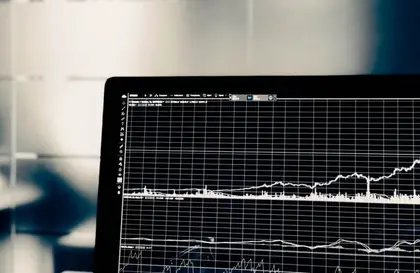Weekly percentage change of key financial market indicators
On Tuesday, July 12, the Ministry of Finance raised Hr 9.8bn ($335m), and almost all of these funds came from the placement of FX-denominated bills, on which rates were up. The Ministry of Finance again satisfied a small part of the demand for Hr-denominated government bonds, only those which were submitted at the same rates as in previous months.
JOIN US ON TELEGRAM
Follow our coverage of the war on the @Kyivpost_official.
All bids at higher rates were rejected, and they accounted for 96% of the total demand for Hr instruments. Instead, the Ministry of Finance raised interest rates on Dollar-denominated paper by 50‒80bp to 3.5‒4.5% and attracted $330m (Hr 9.7bn) or 98.5% of all proceeds from the auction. See details in the auction review.
As a result, the volume of trading on the secondary market with Dollar-denominated bills increased last week, while activity declined for Hr-denominated bills again. Last week, 11 deals worth Hr 504m were concluded with Dollar-denominated securities, compared to 44 deals worth Hr 122m a week before. Trades in Hr-denominated military bills fell from Hr 487m to Hr 308m, and the number of deals fell from 6,606 to 5,208 in a week.
ICU view: The Ministry of Finance continued to insist on unchanged rates for military government bonds in local currency in the primary market, rejecting demand at higher yields and, effectively, failing to attract financing in hryvnia. This week, a large repayment of Hr-denominated bonds is scheduled, and it is again unlikely to be fully refinanced. However, the borrowings may increase from last week’s minimal volumes. The Ministry of Finance is planning to offer tomorrow an expanded set of bills both in hryvnia and hard currency. The market continues to expect that the Ministry of Finance will gradually reduce its dependence on direct financing from the NBU and will likely consider raising rates on Hr-denominated instruments to increase reliance on market borrowings.
Bonds: Eurobond prices at a new low
Over the past week, the prices of Ukrainian Eurobonds fell further, setting new lows since the beginning of the full-scale Russian invasion. Last week, markets continued to digest information about Naftogaz’s intentions to restructure its own Eurobonds. The company officially asked bondholders to approve the postponement of the repayment of each of three series by two years. The market interpreted the intentions of Naftogaz as a clear signal that sovereign Eurobonds will be restructured, too. On Tuesday, July 12, almost all Eurobonds fell below 20 cents; the next day they reached a minimum of 17‒18 cents. Instruments maturing this year and in 2023 were exceptions as on Wednesday, July 13, they fell to 37 and 25 cents, respectively. Later in the week, an IMF representative said that Ukraine is servicing its debt in an orderly way, and the IMF expects that to continue. Against this backdrop, prices rose, but mostly reached no higher than 20 cents.
ICU view: Investors are becoming increasingly convinced that Ukraine will initiate official talks on Eurobonds restructuring to preserve its hard currency liquidity. Although the statement made by the IMF representative was somewhat encouraging, the market generally did not perceive it as an unequivocal recommendation by the IMF to the Ukrainian government to redeem the bonds on time under any circumstances. Ukraine does not have an active program with the IMF, so the Fund’s statements do not currently have any formal weight.
FX: Hryvnia continues to weaken
Last week, the hryvnia continued to weaken in both the cash market and for card transactions. Over the past week, the hryvnia cash exchange rate against the Dollar weakened from Hr 35.6‒36.7/$ on Monday, July 11, to Hr 36.3‒37.2/$ by the weekend. At the same time, the exchange rate for cards’ payments in banks generally moved from Hr 31.2‒33.7/$ on Monday to Hr 31.6‒34.4/$ over the weekend. On the interbank market, the demand and supply from banks’ clients was better balanced and the NBU sold just $588m through interventions, which is only 60% of average interventions in the previous four weeks.
ICU view: The exchange rate was up slightly after Privatbank’s recent decision to align the exchange rate for card transactions with cash exchange rate. This also temporarily lifted the exchange rate for cash transactions, but at the end of last week, the dynamics of the hryvnia weakening stopped. So, the exchange rates are likely to be less volatile this week. A sharp decrease in NBU interventions last week should not be perceived as a significant improvement in the situation on the interbank FX market. It is very likely that the decline in excess demand was temporary and it will return to its usual level of about $1bn as early as this week.
RESEARCH TEAM: Vitaliy Vavryshchuk, Alexander Martynenko, Taras Kotovych
DOWNLOADS: Complete report
You can also highlight the text and press Ctrl + Enter



